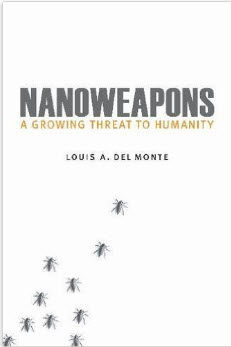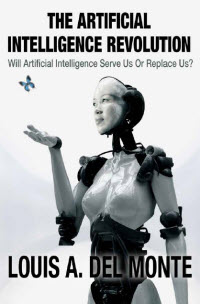Can you computer become mentally ill? At first this may seem to be an odd question. However, I assure it is a potential issue. Let me explain further.
Most artificial intelligence researchers and futurist, including myself, predict that we will be able to purchase a personal computer that is equivalent to a human brain in about the 2025 time frame. Assuming for the moment that is true, what does it mean? In effect, it means that your new personal computer will be indistinguishable (mentally) from any of your human colleagues and friends. In the simplest terms, you will be able to carry on meaningful conversations with your computer. It will recognize you, and by your facial expressions and the tone of your voice it will be able to determine your mood. Impossible? No! In fact some researchers argue that machines should be able to interpret the emotional state of humans and adapt their behavior accordingly, giving appropriate responses for those emotions. For example if you are in a state of panic because your spouse is apparently having a heart attack, when you ask the machine to call for medical assistance, it should understand the urgency. In addition, it will be impossible for an intelligent machine to be truly equal to a human brain without the machine possessing human affects. For example how could an artificial human brain write a romance novel without understanding love, hate, and jealousy?
The entire science of “affective computing” (i.e., the science of programming computers to recognize, interpret, process, and simulate human affects) originated with Rosalind Picard’s 1995 paper on affective computing (“Affective Computing,” MIT Technical Report #321, abstract, 1995). In the last fourteen years, it has been moving forward. Have you noticed that computer generated voice interactions, such as ordering a new prescription from your pharmacy on the phone, is sounding more natural, more human-like? If you combine this information with the concept that to be equivalent to a human mine, the computer would also need to be self conscious.
You may argue if it is possible possible for a machine to be self-conscious. Obviously, since we do not completely understand how the human brain processes consciousness to become self-aware, it is difficult to definitively argue that a machine can become self-conscious or obtain what is termed “artificial consciousness” (AC). This is why AI experts differ on this subject. Some AI experts (proponents) argue it is possible to build a machine with AC that emulates the inter-operation of various parts of the brain called “neural correlates of consciousness” (NCC). NCC. Opponents argue that it is not possible because we do not fully understand the NCC. To my mind, they are both correct. It is not possible today to build a machine with a level of AC that emulates the self-consciousness of the human brain. However, I believe that in the future we will understand the human brain’s NCC inter-operation and build a machine that emulates it.
If in 2025 we indeed have computers equivalent to human minds, will they also be susceptible to mental illness? I think it is a possibility we should consider. We should consider it because the potential downside of a mentally ill computer may be enormous. For example, let’s assume we have a super intelligent computer managing the East Coast power grid. We replaced the human managers with a super intelligent computer. Now, assume the computer develops a psychotic disorder. Psychotic disorders involve distorted awareness and thinking. Two common symptoms of psychotic disorders are:
1. Hallucinations — the experience of images or sounds that are not real, such as hearing voices
2. Delusions — false beliefs that the ill person accepts as true, despite evidence to the contrary
What if our super intelligent computer managing the East Coast power grid believes (i.e., hallucinates) it has been given a command to destroy the grid and does so. This would cause immense human suffering and outrage. However, once the damage is done, what recourse do we have?
It is easy to see where I am going with this post. Today, there is no legislation that controls the level of intelligence we build into computers. There is not even legislation under discussion that would regulate the level of intelligence we build into computers. I wrote my latest book, The Artificial Intelligence Revolution (2014), as a warning regarding the potential threats strong artificially intelligent machines (SAMs) may pose to humankind. My point is a simple one. While we humans are still at the top of the food chain, we need to take appropriate action to assure our own continued safety and survival. We need regulations similar to those imposed on above ground nuclear weapon testing. It is in our best interest and potentially critical to our survival.











